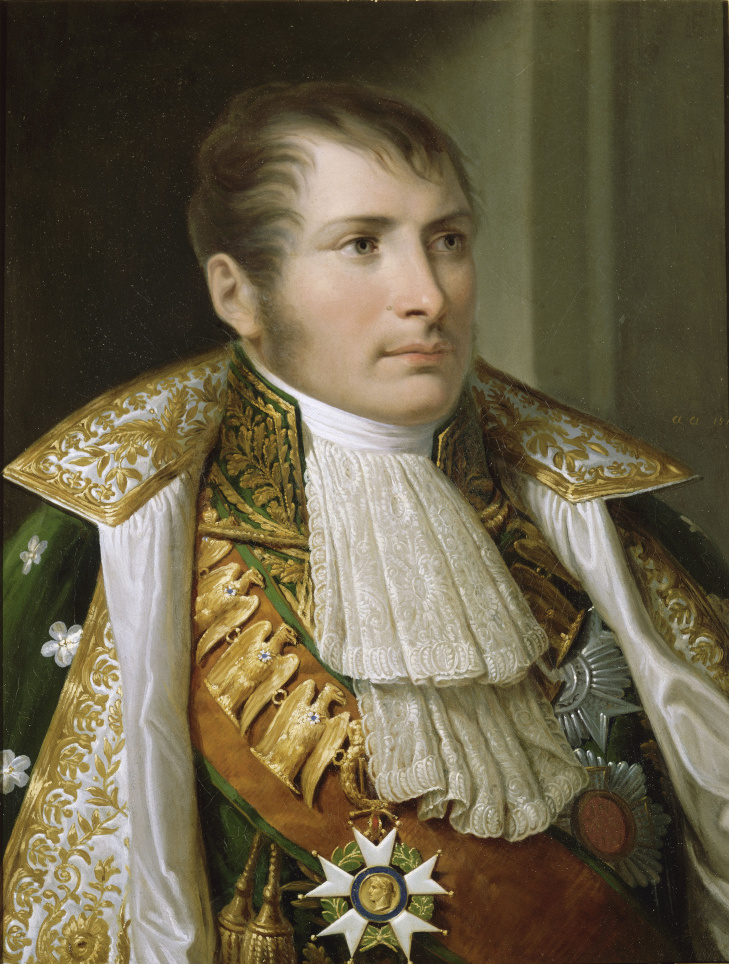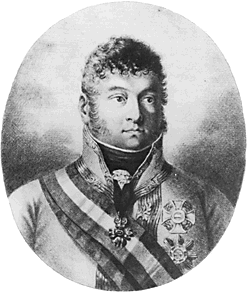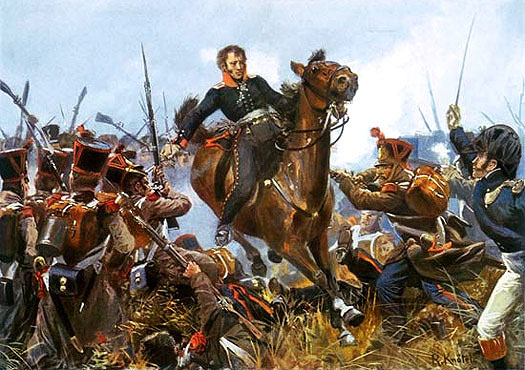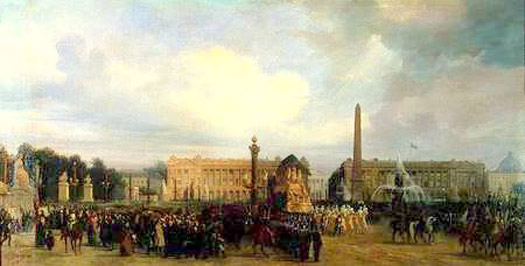The Holy Kingdom of the Italian States
A historical account by Dr. G. Maniac
Prologue –A Vision of Hell
The winter rolls on, and the winter rolls off. The great passes of the Italian Alps break open once more, and, like wine from an uncorked bottle, blood pours on the thawing hills and plains of Italy. From Bolzano to Nice, Austrian meets Frenchman meets Russian meets Italian in the bloody, apocalyptic frontlines of the Napoleonic Wars that would savage these lands so.
But upon the first breaking lights of Spring, in the cold death spasms of a late February winter, the Italian Republic, with Napoleon Bonaparte presiding, began a painful translation into monarchy, one that would see the region turn, in the words of the great Italian poet Basilio Cassini (1780-1821), “Into a vision of Hell unfathomable to the minds of Mortals”. It was a vision unforeseen by even the greatest of Franco-Italian statesmen, even Napoleon himself.
Napoleon was crowed Emperor of the French in late 1804, and it was only his chance survival after being shot by royalist demonstrators outside the Notre Dame on that fateful that set history on a course of rampant warfare and, most importantly to this tale, the bloody climb to Italian independence. Napoleon’s self-appointment to Emperor raised the question of his legitimacy in the Italian Republic, now the Kingdom of Italy. Following fierce opposition from the majority parties in the Italian parliament, the Conservatori and Liberali, devolution was ceded to the Italians by Napoleon himself in the Trattato dei Re, the ‘Treaty of Kings’, on the 22nd of February, 1805. The Kingdom of Italy was to become a satellite state to the French Empire, answerable to her calls and accountable to her demands. At its head was placed the former Viceroy of Italy, Eugéne de Beauharnais, now Eugéne the First, King of the Italians.
Chapter 1 – The Course of History
Eugéne was crowned King of Italy in the Duomo di Milano on the 24th of February to a huge crowd of jubilant Italians and a choice few representatives of a cautious, reluctant French emperor. The devolution of Italy was one of Napoleon’s greatest personal regrets, one that would irk him every time his mind strayed to the subject. Eugéne’s first act as monarch was to dissolve the Italian parliament to allow for a better, more king-pleasing system to be constructed. In the meanwhile, however, the state was busying itself with matters of war. The King’s half-brother, Fabio Piccio di Firenze, Prince of Florence, was appointed commander of all the king’s forces. A relatively invisible and unremarkable man in Italian politics before the devolution, Piccio would come to hold a grand, overarching and controversial career as Generale.
His first moves in the war against the Austrians, which had long laboured in the far borderlands of Venice and Tyrol, was to secure the passes into the German heartland, namely Innsbruck, which lay tactically at the mouth of Bavaria, another sibling-state of Italy with Napoleon having extended his reach into the Rhine-lands. Only three days after his appointment, General Piccio was on the march with the bulk of Italy’s forces, heading straight for Innsbruck. In a spectacularly paced march of only eight days, Piccio reached the Austrian’s furthest outpost against the French with little to no hassle. Bringing his guns to bear on the rather megre defences of the city, Piccio delivered an ultimatum of severe measures.
“Relinquish your control of the city and the lands its observes as its own, or these cannon shall wreck a vengeance upon its defenders unseen in the art of war since the days of Alexander the Great, and a purging of all Germanic citizens will be determined as a fitting punishment for your insubordination and banditry of rightfully Italian lands”
Overly pompous, perhaps, but it did the trick, and the defenders were incensed. The ringleaders of the Austrian defence gravely underestimated the power of the Italian forces, particularly their French-raised Chasseur-a-Cheval regiments. Over the course of a one-day siege, the defenders were whittled down to fifty-odd men, whilst the Italians suffered little to no casualties from the comfort of their entrenched position. A general retreat led the city defenceless, and the Italians marched into Innsbruck on the 8th of March crying ‘Viva l’Italia’ and ‘Viva il Re’. The governor of Innsbruck, an elderly, benign Hungarian, relinquished authority over the city and the lands lying from Innsbruck to Trient. Ecstatic crowds in Milan cried out in nationalistic cheer and general jingoism, and families all over the city toasted to the good health of their king.
Eugéne’s reaction, however, was mixed. Whilst Tyrol had indeed been captured in his name and the people were happy, a problem lay to the South, a vast, predatory problem. A Russian force, fully mobilized and commanded by none other than the fearsome General Kutuzov, was marching up the Po and into French territory. With the French presence in Italy camped in the heartland of the Kingdom as a warning to the ever-encroaching Austrians, and the Italian forces themselves marching through the streets of Innsbruck to the sound of ‘La Marcia Reale Italiana’, the King found his southern provinces, and the back entrance to Milan via Lombardy, severely threatened by the Russian encroachments. A second army is raised to defend the city, the task of commanding it falling to Gavino Lagrangia, a Roman gentleman with little regard for military matters but an overtly obsessive fascination with uniforms and parades, merits that would befit a general of peacetime, but hardly useful and often damning in times of invasion and war.
The French, meanwhile, became impatient with the lack of aggression in Eugéne’s administration. The Austrians were an enemy that the Italians were expected to launch themselves at with every opportunity. Fed up with waiting for the ever-delayed rendezvous with Piccio, the French general, Marshall Jean-André Masséna, moves his forces to the Adriatic coast, daring the Venetian garrison to make the first move. An uncharacteristically boisterous move for the Dear Child of Victory (as Napoleon so fondly nicknamed André), it was to be his undoing, for in late May, King Eugéne received news that the Marshall had been engaged and routed by ‘The Russian brute’, Kutuzov. André was fleeing south, towards the border with the Papal States, an act that would spark the Crisis of the 28the May.
The Papacy and the government of the States were alarmed by news of French troops were moving on their borders. Napoleon was the antichrist, and his armies were viewed with contempt at best, and damnation at worst. The Vatican, believing the French sympathisers of the throne of Italy to be collaborating, issued demands for Eugéne to remove the French presence from Papal lands. Eugéne, frustrated by these accusations of deliberate hostility, denied that he was actively seeking to invade the States and that he was in any way involved with the rampant French Marshall. Whether the claims were true or not, it was reported on the 19th of March, Jean-André passed into Papal lands, perused by Kutuzov. It is most likely that André was lost and confused, and belived himself to be in the lands of the Kingdom, but in any case, a desperate battle broke out between the cornered French forces and the Russian army in the far north of the Papacy’s lands. Confusion broke out between the negotiators of France and the Papacy, and war was declared by the Papacy against France, and Eugéne was reluctantly required to join his masters’ side. On the 2nd of June, 1805, the Italian Wars broke out in their first format: The Franco-Papal War.
To add to his increasing pile of woes, Eugéne was informed of sparse sightings of a fast-moving Austrian army marching on Trient, the crossroads between Tyrol and the rest of the Kingdom. The army was led by none other than Archduke Charles of Austria himself, and he aimed to jam a wedge between the main Italian army, still busy chasing down Austrian sympathisers and opportunistic bandits in the Tyrol passes, and the reserve forces manning the defences of Milan. Russians, Austrians and the almighty Pope himself were ramming on Eugéne’s doors at the crossroads of the Napoleonic War, and everything was at stake to all sides. Eugéne called for parliament to resume, and waited anxiously on his throne.
Whatever he would do next could change the course of history itself





 Napoleon I, Emperor of the French
Napoleon I, Emperor of the French  King Eugéne I of Italy
King Eugéne I of Italy  General Fabio Piccio di Firenze
General Fabio Piccio di Firenze  General Gavino Langrangia
General Gavino Langrangia  Marshall Jean-André Masséna
Marshall Jean-André Masséna  The Declaration of War against the Papal States, 1805
The Declaration of War against the Papal States, 1805 
 Reply With Quote
Reply With Quote













 General Joseph Philipp Vukassovich
General Joseph Philipp Vukassovich  General Mikhail Kutuzov
General Mikhail Kutuzov  The Death of Alessio Ligabue
The Death of Alessio Ligabue  The Adda
The Adda  La Pace de Montepulciano
La Pace de Montepulciano  King Eugéne's Belfry, circa 2002
King Eugéne's Belfry, circa 2002  Italians at the Cannon!
Italians at the Cannon!  A Cheval falls to the Austrians
A Cheval falls to the Austrians  The Austrian Retreat, persued by Italian skirmishers
The Austrian Retreat, persued by Italian skirmishers  A Victorious Italian Army, recived by the public in Milan, painting by G.A.Gustav, 1808
A Victorious Italian Army, recived by the public in Milan, painting by G.A.Gustav, 1808 

 The Russian Retreat
The Russian Retreat 




